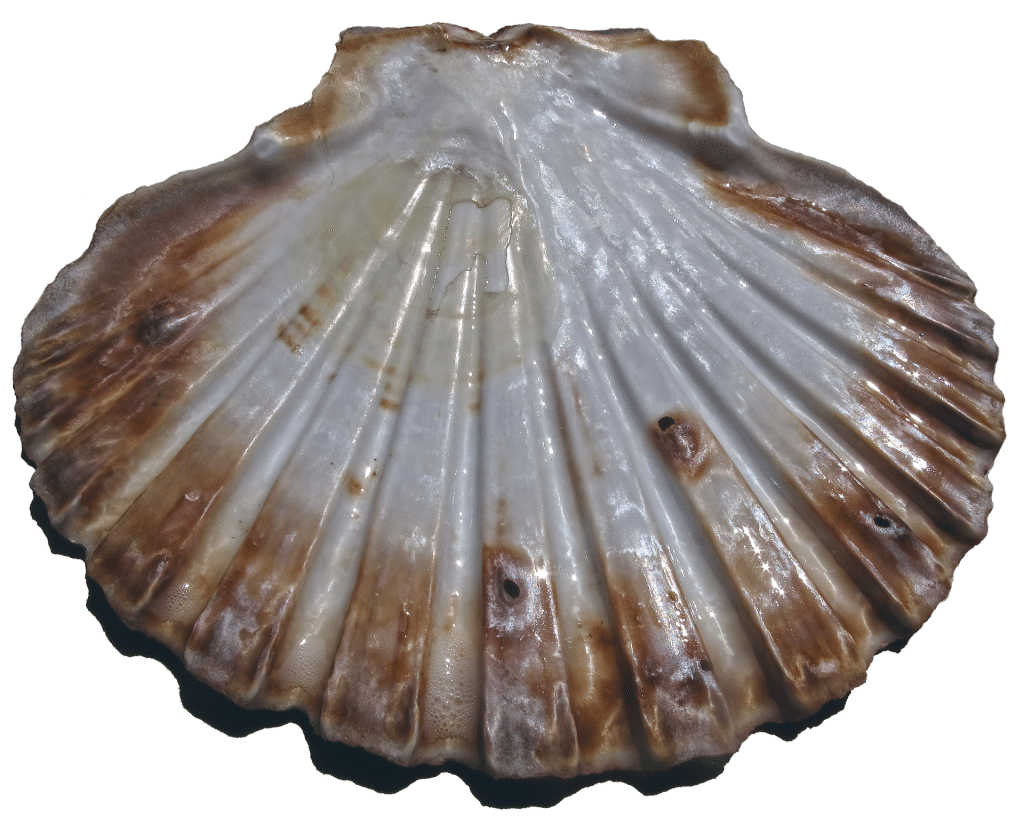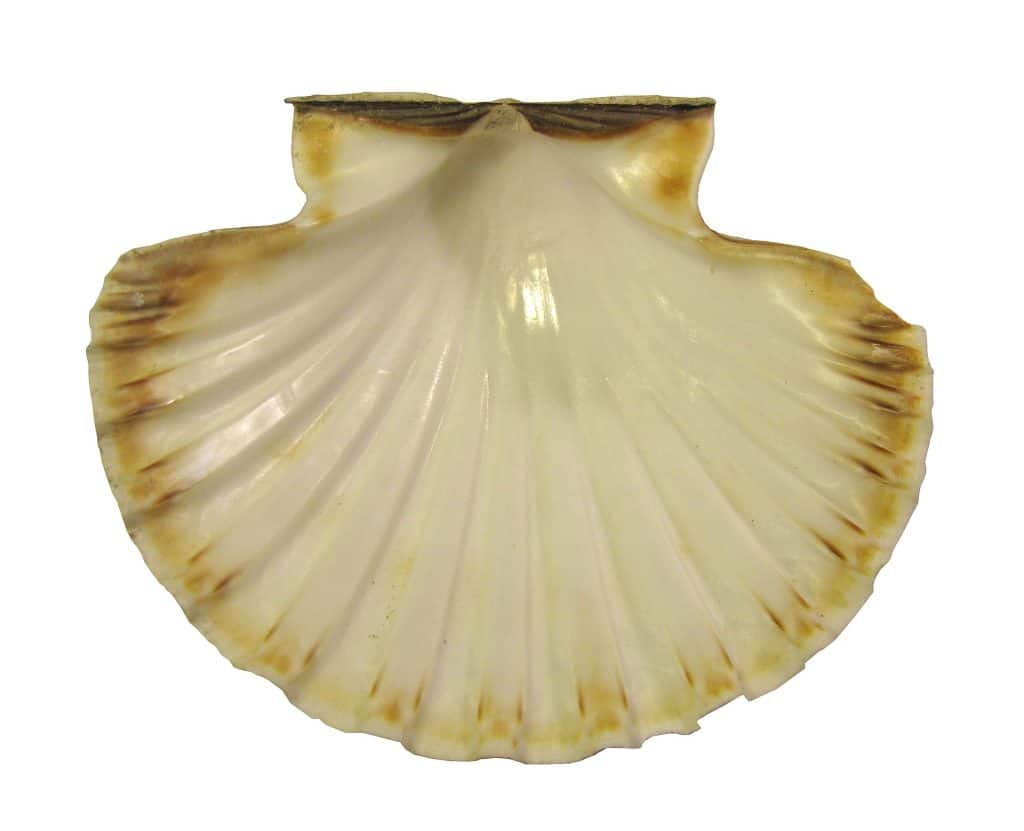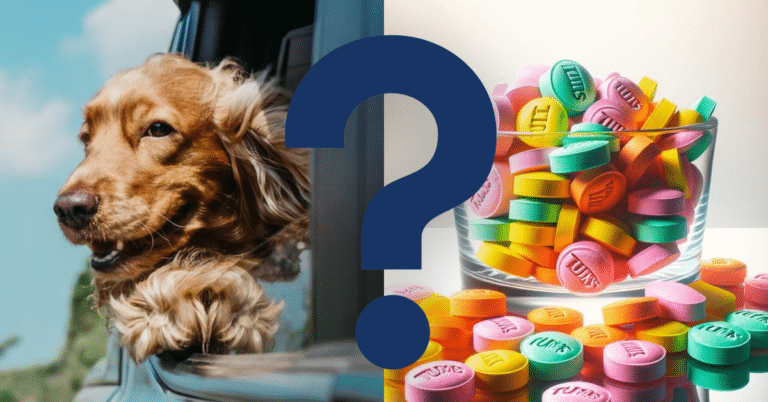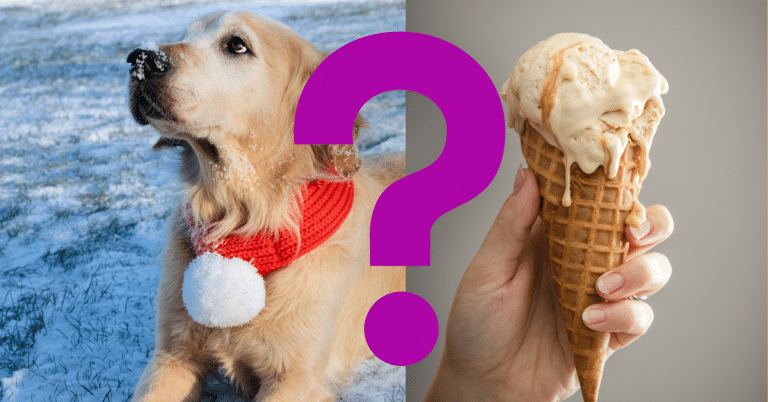Can Dogs Eat Scallops? A Vet’s Opinion

Scallops are a type of seafood commonly found in oceans around the world. They are molluscs with two beautiful, fan-shaped shells. The edible part of a scallop is the tender white muscle that lies inside the shell, known for its delicate, sweet flavour and tender texture when cooked, but can you feed Scallops to your dog?
You can give scallops to dogs to eat but with caution. While scallops can be a nutritious source of protein, they should only be given to dogs in small amounts and properly cooked without any seasonings or additives. It’s essential to remove any potential choking hazards like the challenging, fibrous part called the “foot.”
Let’s dive in:
Benefits Of Scallops For Dogs
Scallops are a good source of lean protein, which is essential for maintaining muscle strength and overall health in dogs. Protein supports various functions in a dog’s body, including tissue repair, immune system function, and the production of enzymes and hormones. Scallops also contain important vitamins and minerals that can contribute to a dog’s well-being. They are rich in vitamin B12, which is crucial for a healthy nervous system and the production of red blood cells. Additionally, scallops provide minerals such as zinc, selenium, and magnesium, which play vital roles in supporting immune function, maintaining healthy skin and coat, and promoting proper cell function.
The omega-3 fatty acids found in scallops can also offer health benefits to dogs. These essential fatty acids have anti-inflammatory properties and support cardiovascular health, brain function, and joint health. Including omega-3 fatty acids in a dog’s diet can be particularly beneficial for dogs with inflammatory conditions, allergies, or joint stiffness. However, despite the potential benefits, there are some considerations to keep in mind when feeding scallops to dogs. It’s crucial to cook scallops thoroughly before serving them to dogs to eliminate the risk of bacterial contamination and to make them more easily digestible. It’s also important to remove any parts of the scallop that may pose a choking hazard, such as the hard, fibrous foot.

How To Safely Give Scallops To Dogs
When it comes to feeding scallops to dogs, it’s crucial to take certain precautions to ensure their safety and well-being. First and foremost, it’s essential to cook scallops thoroughly before serving them to dogs. Raw or undercooked scallops can pose a risk of bacterial contamination, which can lead to digestive upset or even foodborne illnesses. Ensure that the scallops are fully cooked to eliminate any potential pathogens and make them easier for your dog to digest. Another precaution to keep in mind is to remove any parts of the scallop that may present a choking hazard. The rugged, fibrous foot of the scallop should be trimmed and discarded before feeding it to your dog. This part can be challenging to chew and may pose a choking risk, especially for smaller breeds or dogs prone to gulping their food. Ensuring that the scallops are in bite-sized pieces can help reduce the risk of choking and promote safer consumption. Portion control is another essential aspect to consider when feeding scallops to dogs. While scallops can be a nutritious source of protein, they should be given in moderation. Too much protein in a dog’s diet, especially if they have underlying kidney issues, can strain their kidneys. Additionally, the high phosphorus content in scallops may not be suitable for dogs with certain medical conditions.
It’s essential to consult with a veterinarian to determine the appropriate portion size and frequency of feeding scallops based on your dog’s individual needs and health status. It’s worth noting that some dogs may have allergies or sensitivities to shellfish, including scallops. If your dog has never consumed scallops before, it’s advisable to introduce them gradually and monitor their response. Watch for any signs of allergic reactions, such as itching, redness, swelling, or gastrointestinal distress. If you notice any adverse reactions, discontinue feeding scallops and consult with a veterinarian for further guidance. As with any treat or addition to your dog’s diet, it’s important to remember that variety is vital. While scallops can be a tasty and nutritious option, they should not replace a balanced and complete diet specifically formulated for dogs. Ensure that your dog’s overall diet meets its nutritional needs, and consult with a veterinarian to determine the best dietary plan for your furry friend. Lastly, it’s essential to consider your dog’s individual health and dietary requirements before introducing scallops into their diet. Dogs with a history of pancreatitis, digestive sensitivities, or specific dietary restrictions may not tolerate scallops well. It’s always recommended to seek professional advice from a veterinarian who can provide personalized guidance based on your dog’s unique needs and health condition.
Will Scallops Make A Dog Sick?
One of the many concerns while feeding scallops to dogs is the risk of bacterial contamination. Raw or undercooked scallops may contain harmful bacteria such as Salmonella or Vibrio, which can lead to foodborne illnesses in dogs. These infections can result in symptoms such as diarrhoea, vomiting, abdominal pain, and dehydration. Hence it is crucial to cook scallops thoroughly before feeding them to your dog. Another potential harm is the risk of choking or obstruction. Scallops have a unique texture, and certain parts of the scallop, such as the foot, can be tough and fibrous. These parts can pose a choking hazard, especially for dogs that tend to swallow their food quickly without thorough chewing. Ingesting large or unchewed pieces of scallops may lead to choking, blockage in the throat, or even intestinal obstruction. It’s important to remove any potential choking hazards and ensure that scallops are cut into small, manageable pieces before feeding them to your dog. Additionally, some dogs may have allergies or sensitivities to shellfish, including scallops. Allergic reactions to scallops can manifest in various ways, such as itching, skin rashes, hives, swelling of the face or throat, difficulty breathing, or gastrointestinal distress. If you notice any signs of an allergic reaction after your dog consumes scallops, it’s important to discontinue feeding them and consult with a veterinarian. They can help identify and manage any potential allergies or sensitivities your dog may have.
Furthermore, scallops are relatively high in purines, which are natural compounds that can be metabolized into uric acid. In certain dog breeds or individual dogs with a predisposition to developing urate bladder stones or gout, the consumption of foods rich in purines, including scallops, may contribute to the formation of these urinary tract issues. If your dog has a history of urinary tract problems or is prone to developing bladder stones, it’s best to avoid feeding them scallops or any other purine-rich foods. It’s important to note that portion control is crucial when feeding scallops to dogs. While scallops can be a good source of protein, excessive consumption can strain a dog’s kidneys, particularly in dogs with pre-existing kidney issues. High levels of protein can increase the workload on the kidneys, potentially leading to kidney stress or even kidney damage.

Vet’s Summary
Feeding scallops to dogs should be approached with caution due to potential risks, such as bacterial contamination and choking hazards. However, if properly cooked and prepared, scallops can offer some nutritional benefits. They are a good source of lean protein, essential vitamins, and minerals like vitamin B12, zinc, and magnesium. Additionally, scallops contain omega-3 fatty acids, which can support a dog’s cardiovascular health, brain function, and joint health. It’s important to remember that scallops should only be given as an occasional treat, in moderation, and after consulting with a veterinarian to ensure they are suitable for your dog’s individual needs. Adding probiotics to your dog’s diet is also crucial, as they support a healthy gut and digestion, boost immunity, and aid in nutrient absorption.
Videos To Watch
If you are wondering what related foods are good to give your dog, watch this:
And if you want to know what a dog can NOT eat, watch this:






